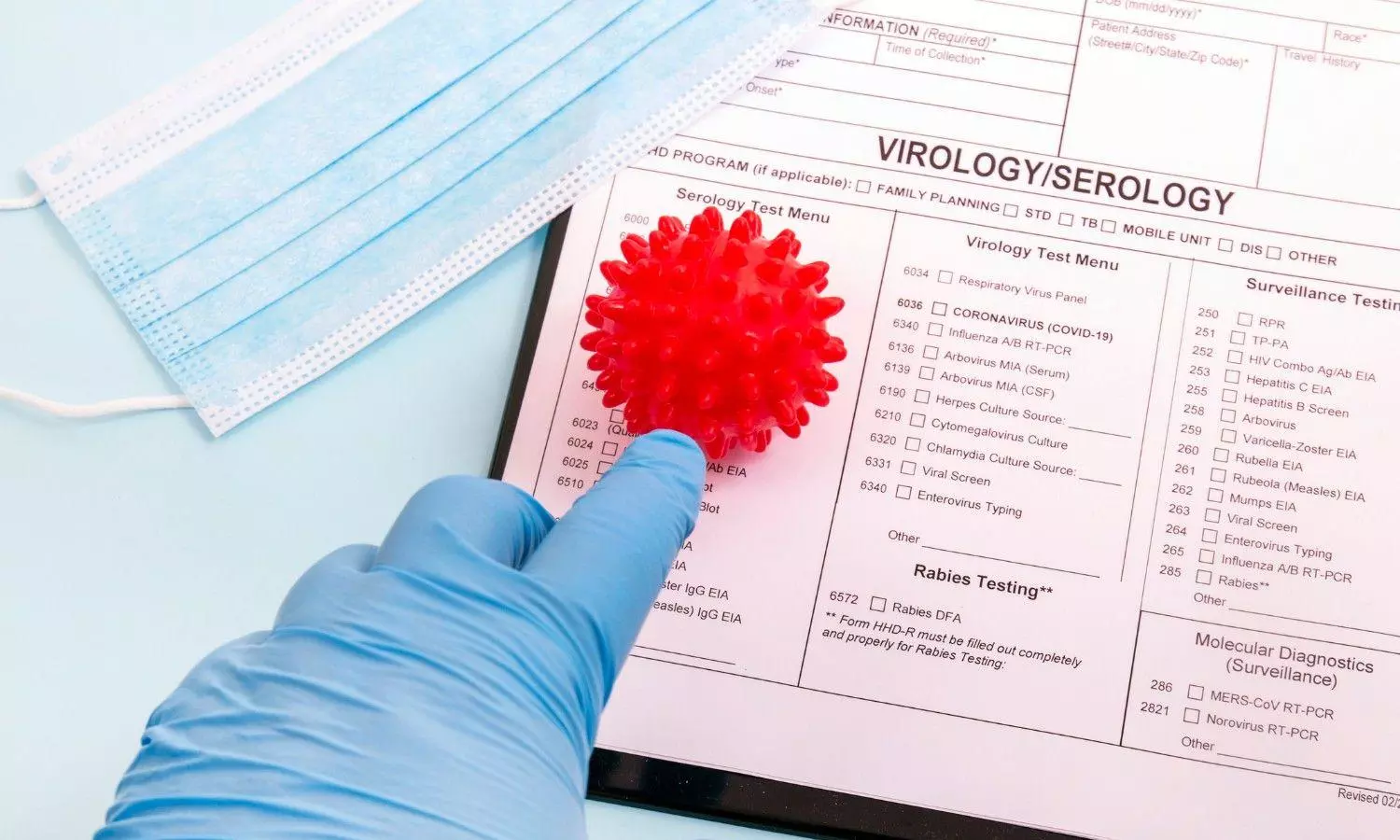
Tamil Nadu COVID update: Serosurvey offers good news, but lung patients be cautious
Periodic resurgences of the virus are possible, and individuals with comorbidities should continue to exercise caution

Even as active COVID cases in the country have crossed the 7,000 mark and over 1,000 new infections are being reported daily, the latest serosurvey by the Directorate of Public Health and Preventive Medicine in Tamil Nadu reveals that the protective level of COVID-19 antibodies is about 97 per cent.
The survey states that natural infection and subclinical infections caused by the weakened circulating Omicron sub-lineage of the SARS-CoV-2 virus may have contributed to this high level of antibody development.
Also Read: As COVID cases rise sharply in a week, will a booster dose of vaccine help?
Mild but contagious
Experts say that while the serosurvey results may be reassuring, periodic resurgences of the virus are possible, and individuals with comorbidities should continue to exercise caution.
The recent rise in COVID-19 cases across India is largely driven by newer sub-lineages of the Omicron variant, including JN.1 and its offshoots such as NB.1.8.1 and LF.7.
These strains are more contagious but typically cause mild illness, especially among those who are vaccinated or have had previous infections.
No need for alarm
Doctors say that the serosurvey results showing 97 per cent antibody levels among the elderly is encouraging. It indicates that a large section of the population has developed protective immunity — likely due to a combination of vaccination and previous mild infections.
Dr Madhumitha R, Senior Consultant in Infectious Diseases and Infection Control at MGM Healthcare, Chennai, says that this level of immunity significantly lowers the risk of severe illness.
Therefore, at this stage, elderly individuals need not be alarmed, as the current variants in circulation are not causing severe illness in most people. However, it remains important for vulnerable groups to follow basic precautions.
Also Read: COVID: States not procuring vaccines; persons with comorbidities advised to be cautious
High antibody levels
High antibody levels reflect strong population-wide protection, which helps slow down the spread of the virus and prevent major outbreaks. While it doesn’t mean transmission will stop entirely, the risk of serious complications is significantly reduced.
The first serosurvey conducted in October 2020 showed that the antibody presence was about 32 percent, which dropped to 29 per cent in April 2021, gradually improved to 70 per cent in August 2021, and reached 87 per cent in December 2021.
The latest serosurvey conducted in April 2025, which shows a 97 percent antibody presence, also attributes the high level of protection against the virus not only to natural infection but also to the vaccination drive.
Also Read: Two more COVID-related deaths reported in Karnataka; toll rises to 11
New variant causes surge
Dr. Nanda Kumar R, Senior Consultant of Internal Medicine at SRM Global Hospitals, Chennai, said when antibody levels are high at the community level, the risk of transmission and complications is lower among individuals with antibodies.
Herd immunity also contributes to a slower spread of the virus and fewer severe cases.However, elderly individuals with comorbidities remain at risk of complications like pneumonia if infected by COVID-19. The level of antibodies offer protection and aid in recovery.
The recent increase in cases is reportedly linked to the emergence of the new XFG variant. The Indian SARS-CoV-2 Genomics Consortium (INSACOG) has identified several cases associated with this variant, with further details awaited.
Also Read: Active Covid cases in India cross 6,000; Kerala still worst-hit state
Lung patients advised caution
The Union Health Ministry has launched a coordinated assessment of the country's public health preparedness.
Dr. Naveen Vennilavan R, Associate Consultant of Pulmonology at Kauvery Hospital, Chennai, said current COVID cases are showing symptoms such as fever, chills, running nose, cough, sore throat, headache, fatigue, difficulty in breathing, and, in some cases, diarrhea.
“Patients with chronic lung diseases like asthma or COPD are at increased risk, as COVID can exacerbate these underlying conditions. It is important for such individuals to keep their lung illnesses under control with regular medication, avoid crowded places, and seek medical advice if symptoms worsen,” he adds.

